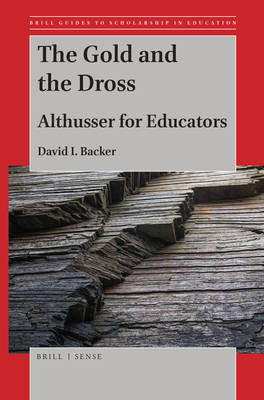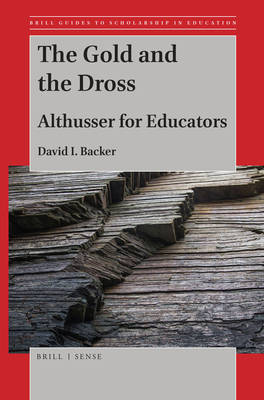
- Afhalen na 1 uur in een winkel met voorraad
- Gratis thuislevering in België vanaf € 30
- Ruim aanbod met 7 miljoen producten
- Afhalen na 1 uur in een winkel met voorraad
- Gratis thuislevering in België vanaf € 30
- Ruim aanbod met 7 miljoen producten
Zoeken
Omschrijving
In the last decade, there has been an international resurgence of interest in the philosophy of Louis Althusser. New essays, journalism, collections, secondary literature, and even manuscripts by Althusser himself are emerging, speaking in fresh ways to audiences of theorists and activists. Althusser is especially important in educational thought, as he famously claimed that school is the most impactful ideological state apparatus in modern society. This insight inspired a generation of educational researchers, but Althusser's philosophy--unique in a number of ways, one of which was its emphasis on education--largely lost popularity.
Despite this resurgence of interest, and while Althusser's philosophy is important for educators and activists to know about, it remains difficult to understand. The Gold and the Dross: Althusser for Educators, with succinct prose and a creative organization, introduces readers to Althusser's thinking. Intended for those who have never encountered Althusser's theory before, and even those who are new to philosophy and critical theory in general, the book elaborates the basic tenets of Althusser's philosophy using examples and personal stories juxtaposed with selected passages of Althusser's writing. Starting with a beginner's guide to interpellation and Althusser's concept of ideology, the book continues by elaborating the epistemology and ontology Althusser produced, and concludes with his concepts of society and science. The Gold and the Dross makes Althusser's philosophy more available to contemporary audiences of educators and activists.
Despite this resurgence of interest, and while Althusser's philosophy is important for educators and activists to know about, it remains difficult to understand. The Gold and the Dross: Althusser for Educators, with succinct prose and a creative organization, introduces readers to Althusser's thinking. Intended for those who have never encountered Althusser's theory before, and even those who are new to philosophy and critical theory in general, the book elaborates the basic tenets of Althusser's philosophy using examples and personal stories juxtaposed with selected passages of Althusser's writing. Starting with a beginner's guide to interpellation and Althusser's concept of ideology, the book continues by elaborating the epistemology and ontology Althusser produced, and concludes with his concepts of society and science. The Gold and the Dross makes Althusser's philosophy more available to contemporary audiences of educators and activists.
Specificaties
Betrokkenen
- Auteur(s):
- Uitgeverij:
Inhoud
- Aantal bladzijden:
- 100
- Taal:
- Engels
- Reeks:
- Reeksnummer:
- nr. 1
Eigenschappen
- Productcode (EAN):
- 9789004394681
- Verschijningsdatum:
- 7/02/2019
- Uitvoering:
- Paperback
- Formaat:
- Trade paperback (VS)
- Afmetingen:
- 152 mm x 234 mm
- Gewicht:
- 158 g

Alleen bij Standaard Boekhandel
+ 183 punten op je klantenkaart van Standaard Boekhandel
Beoordelingen
We publiceren alleen reviews die voldoen aan de voorwaarden voor reviews. Bekijk onze voorwaarden voor reviews.








